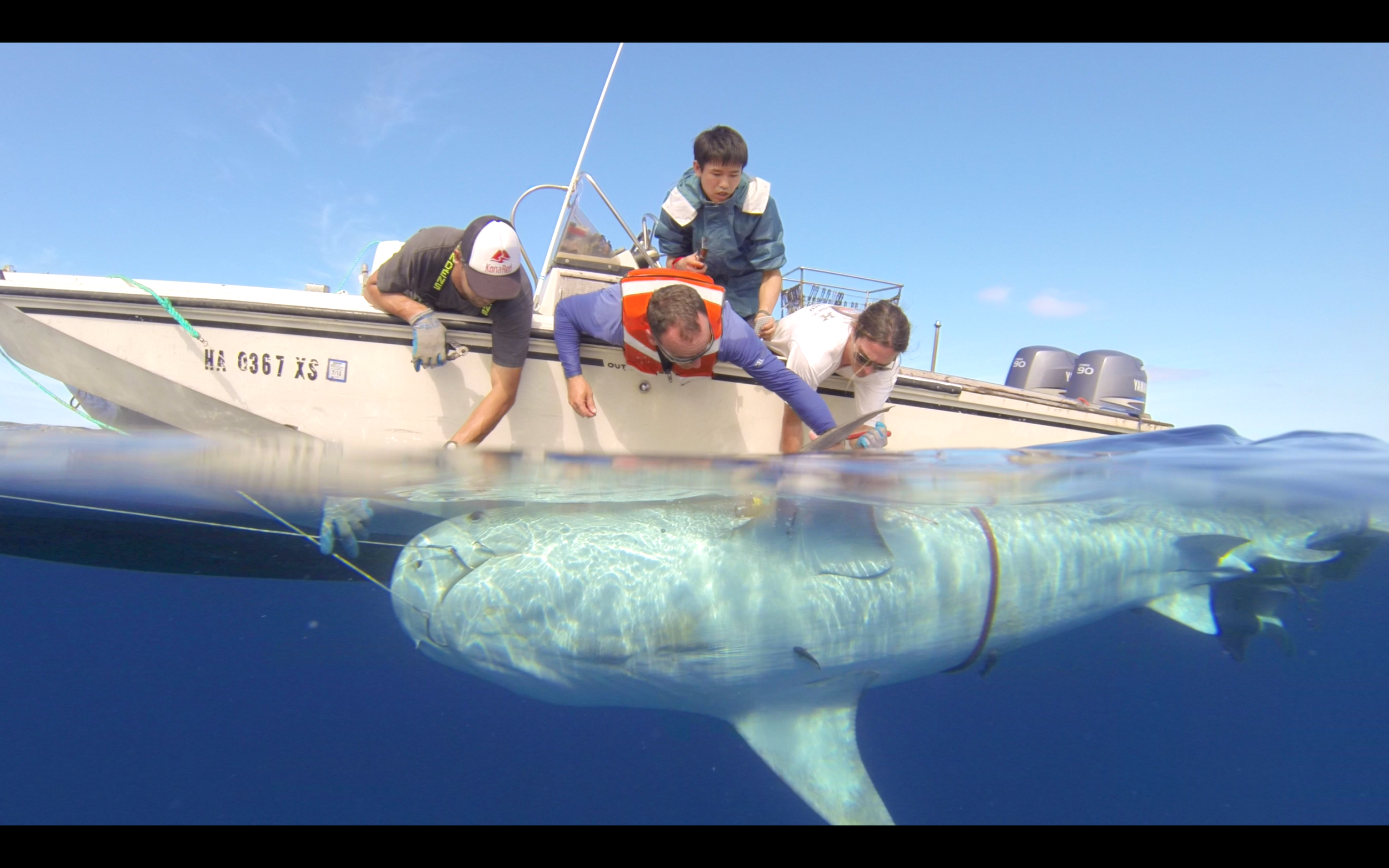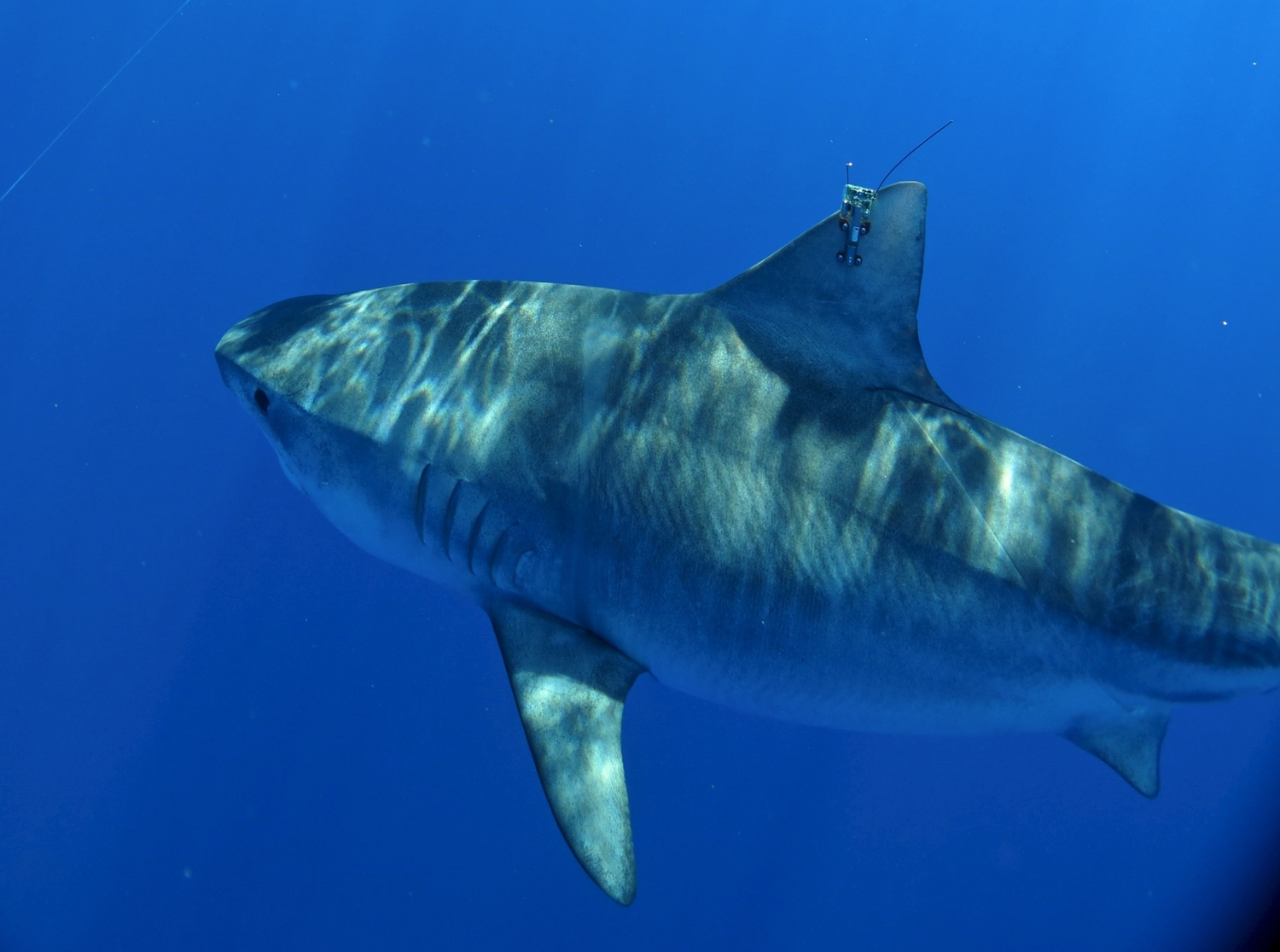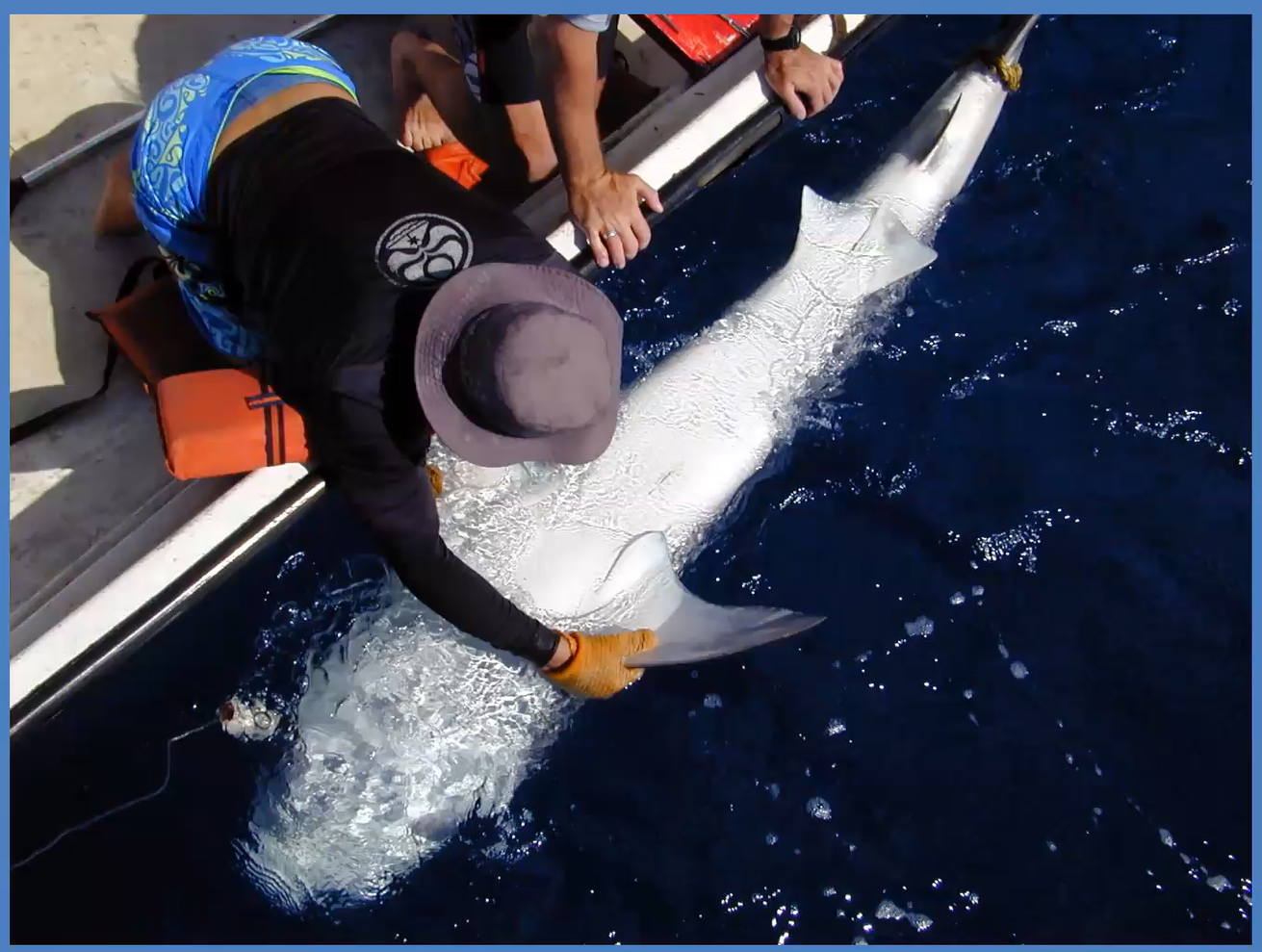On November 14, 2023, we were honored to host Dr. Kim Holland of the University of Hawaii’s Institute of Marine Biology for a fascinating presentation, “An Overview of Shark Research in Hawaii”. Dr. Holland presented a broad-strokes overview of past and current research at Hawaii’s Institute of Marine Biology and focused on the physiological ecology and behavior of several shark species found in Hawaiian waters. The talk discussed research with both captive and wild animals.
Check out our video recording of this webinar to learn about the discoveries that have come from various types of electronic transmitters (e.g., acoustic and satellite-linked) and what they have revealed about aspects of shark movements and physiology - previously unknown.
This free event is open to the public. Registration is required. A suggested donation of $10 per participant is encouraged and greatly appreciated. Donations help cover webinar costs and support our education and cetacean research grant programs.
ABOUT DR. KIM HOLLAND
Faculty, University of Hawaii’s Institute of Marine Biology
Dr. Kim Holland first attended the University of Hawaii as an undergraduate and subsequently became a member of the HIMB faculty in 1980 after earning his Ph.D. at the University of Pennsylvania.
During his tenure at HIMB, he founded the Pelagic Fisheries and Shark Research Groups. Much of his research has involved investigating the sensory biology and movement patterns of large marine predators such as tuna, marlin, and sharks. Sensory biology research involves captive animals whereas open ocean work has emphasized the use of various types of electronic transmitters. In this regard, he has been a leader in working with tag manufacturing companies to develop and deploy novel types of transmitters. He ascribes much of his success to being able to recruit and mentor an unbroken string of excellent graduate students. He is currently Co-Editor-in-Chief of Animal Biotelemetry journal.





